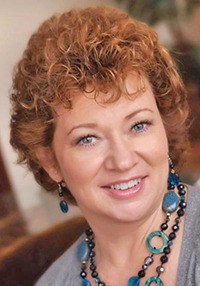Months ago a handful of Lea Hill residents told Auburn leaders about some property owners who had jerry-rigged student rental housing inside their houses in the neighborhoods north of Green River Community College.
They described small garages divided into numerous tiny rooms that had never been inspected, never permitted and in which the renters were daily exposed to numerous fire and electrical hazards. They described overcrowded single-family homes, parking and noise problems, piles of garbage — and rats.
All true.
The City’s Planning and Community Development Committee directed City planners to address the life and safety issues presented by such, slapdash construction through changes to the City’s zoning code.
At first planners and committee members thought that they could buy the five or six months they would need to make the big zoning changes by adopting an interim definition of “family” that struck what had been on the books since 1987.
The word “family comes up where the regulations define the number of people allowed by the building code, for example, in multi-family developments.
The amendment would have removed from the 26-year-old definition of family the words enclosed in single quotation marks: “a person living alone, or two or more persons related by blood or marriage ‘or a group of eight or fewer residents who are not related by blood or marriage.'”
The temporary effect would have been to prevent unrelated people from obtaining rental housing.
Existing rentals meeting the definition of family with a valid rental housing business license before any code change would have been considered preexisting, legal non-conforming uses, according to City Attorney Dan Heid.
The City’s Planning and Community Development Committee wrestled with the issue in two public hearings before recommending that the City adopt the interim rule.
But the PDC last week found too many problems, too many unintended and unacceptable consequences in the reworked definition.
“My biggest concern is … how are we to define a family?” said Committee Chair Nancy Backus. “If you have two people that are living together in lieu of marriage, they wouldn’t qualify for any type of a rental agreement if we passed this definition of family.”
And what if two friends want to share the rent, Backus continued.
“I’m concerned about us limiting what a family is. I realize what we’re trying to do, and I want to make sure that we’re doing something that helps us eliminate these illegal residential situations, which are a safety issue,” Backus said.
“I feel like I am intruding on other people’s value systems that I don’t know of and superimposing my own,” said committee member Largo Wales.
“The more thought that I give it, the more troubled I am with us as a City trying to define what a family is,” said committee member John Holman. “Our society is changing, and we’re tending as a society to broaden our definition of family. And yet by striking that clause, we tend to be narrowing it, moving in the opposite direction of society. I think it is far better to engage in enhanced enforcement of existing codes.”
The committee did leave the definition alone in favor of emphasizing codes already on the books and strengthening the City’s definition of boarding houses.
Backus said her committee wants to look at opportunities to partner with the neighbors and the college to come up with student housing criteria, and to decide whether there needs to be agreements in place among the City, the college, owners of homes and students living there.
“We will have more robust discussions on those items very soon, but changing the definition of family, even for a very short time, was just not something we could work with,” Backus said.



